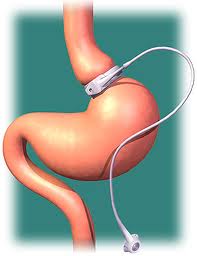In last week’s post, we talked about how to interpret thyroid hormone test results. Now, let’s talk about the role that thyroid hormones play in body weight regulation.
Thyroid hormone plays an important role in regulating our metabolism. Thyroid hormone affects metabolism in almost all human cells, by affecting rates of protein production and fuel usage. Thyroid hormone is involved in regulating the activity of mitochondria, which are the energy powerhouses of our cells, and is also involved in how our cells respond to the effects of adrenaline.
Thyroid hormone has a major influence on our resting metabolic rate (RMR), which refers to the energy that we burn at rest while our cells are performing their daily activities. As thyroid hormone interacts with the sympathetic nervous system which produces adrenaline, higher thyroid hormone levels can also generate a higher level of non exercise activity thermogenesis or NEAT. NEAT refers to any calories burned by moving around that is not related to focused exercise: this can be walking to work, fidgeting, moving around at the office, or doing chores at home. People who have higher thyroid hormone levels may feel more energetic, thus being more inclined to have more NEAT in their day. Many people who develop overactive thyroid glands (called hyperthyroidism) become anxious, nervous, and fidgety, thereby burning more calories via NEAT. High thyroid levels also stimulate increased food intake, with a particular increased appetite for carbohydrates; this may be due to the interaction with the sympathetic nervous system.
Some people with overactive thyroid glands lose weight because of the higher resting metabolic rate and higher NEAT. Other people with hyperthyroidism do not lose weight, and can even gain weight, likely due to a higher drive to eat more. For those who do lose weight, much of this weight loss is from the loss of needed body protein (thereby depleting muscles and often causing muscle weakness).
For people who develop an underactive thyroid (called ‘hypothyroidism’), one consequence is usually weight gain, due to the lower metabolic rate. Unfortunately, once the hypothyroidism has been diagnosed and treated with thyroid hormone, the weight that was gained while the thyroid levels were low is very rarely lost spontaneously – a major source of frustration for many people diagnosed with hypothyroidism. This is because evolution has built us to conserve weight: when something temporary has caused us to gain weight, that weight does not go away when the stimulus to gain weight has passed. The same principle applies to people who experience weight gain due to a medication (eg some antidepressants, antiseizure, antipsychotic medications), post pregnancy, and just about any other cause of weight gain.
Treating an overactive thyroid gland is important, because too much thyroid hormone can lead to health problems such as heart problems, arrhythmias, and osteoporosis. It is also for these reasons that it is important not to overtreat hypothyroidism with too much thyroid hormone.
It is likewise important to treat hypothyroidism with thyroid hormone, not only because it can contribute to overweight and obesity, but also because of other potential health consequences such as anemia, carpal tunnel syndrome, and heart failure in more severe cases.
Follow me on twitter! @drsuepedersen
www.drsue.ca © 2019












